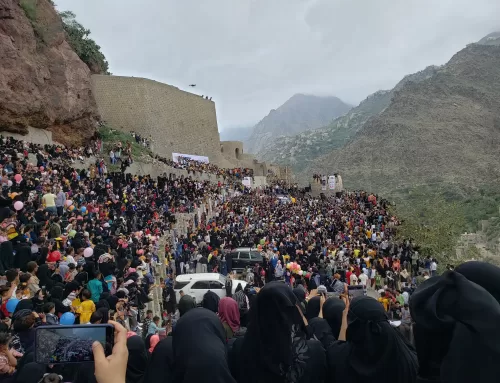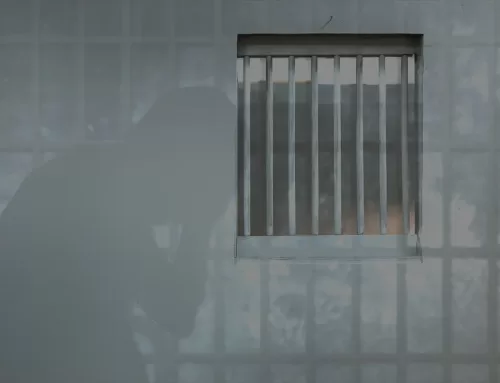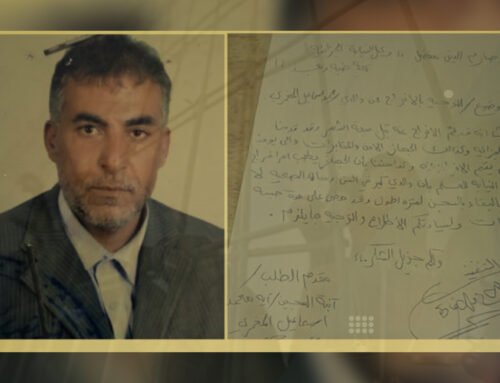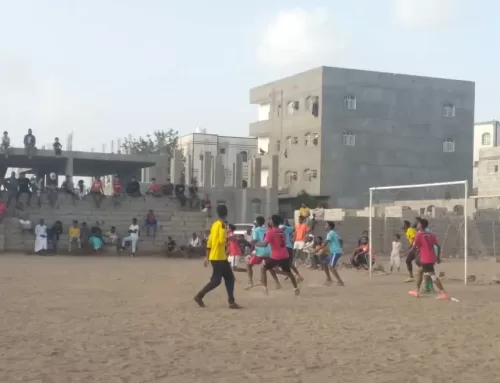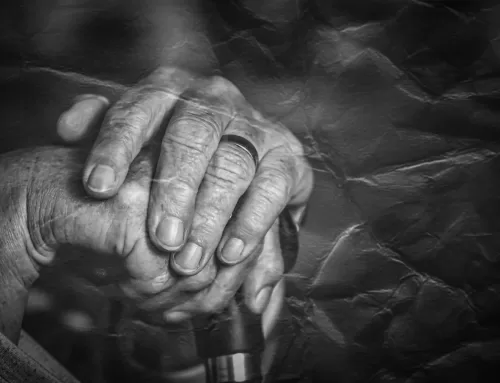Get Me Out of Here
28 August 2021
Driven by a passion that grew with him since he was a child, one year after he had graduated from high school in the countryside of Hajjah province, 24-years-old Nasser (pseudonym) started incessantly to try to persuade his parents to accept his idea of studying abroad, and to allow him to travel there for this purpose. He went on until they finally agreed to his wishes, after he demonstrated to them that the major that he wanted to study had deteriorated in Yemen during the years of the war to such an extent that it has disappointed him and compelled him to look for a better place to study outside Yemen.
The ideal choice for Nasser’s father, Salah Ahmed (pseudonym/48 years old) was one of the Arab countries, for several considerations. The most important consideration was that most of the villagers in the central region of Hajjah province tend to be reserved about sending their children to study abroad, except when it is a scholarship, or in a country that is not dominated by Western culture.
As soon as Nasser obtained his parents’ approval, he eagerly started processing travel arrangements until he got them accomplished, and it was time to say goodbye. It was a scene of embraces and crying, in which Nasser’s tears were mixed with the tears of his parents, as if it was his last meeting with them. Later on, that warm scene will turn into a bereavement scar that left its mark in the heart and memory of Hajj Salah (Nasir’s father) whenever he is alone or tired of waiting gloomily for the minutes to pass.
Salah Ahmed describes those moments as if he were ripping them out of his heart:
“I still lament the last time I embraced him as I was looking at his mother’s tears and the intensity of her prayers that she used to recite since he left home on his journey until he arrived at the country of his destination.”
There he finished two academic years, in which he excelled and achieved high grades that delighted his parents, and eased the weight on them of his absence from his family and homeland. While Nasser was preparing to start his third academic year, he did not expect that there would be a suspension of studies in the country in line with lockdown measures indefinitely imposed by most countries of the world following the COVID-19 pandemic.
That was enough for Nasser to heed the wishes of his parents, who persuaded him to return to Yemen to spend that open vacation amidst of his family, pending the resumption of studies. That was what Nasser actually resolved to do. He decided to return back, not anticipating an unexpected accident that was lurking on his way back home.
The victim’s father recalls this part of the story with a tremendous anguish:
“We decided that he would return for a visit until the studies resume. We wish we hadn’t done so.”
That regret continued to haunt him, as he recounted the details of what happened the day his son arrived at Seiyun Airport, in March 2021. At that moment the victim sent his last “WhatsApp’’ message to his father informing him that he arrived at the airport, and that he was looking forward to see them in their upcoming meeting, before he disappeared with no trace or further news on his whereabouts, other than a monotonous and repeated message that announced: “This device may be switched off or out of coverage,” every time his father tried to call.
A Glimmer of Hope and a Flare of Pain
A month after Nasser’s disappearance, specifically on Ramadan 1, 1443 AH corresponding to April 22, 2021, the end of the line lead to the location of the victim, when Salah Ahmed’s phone rang with a call from an unknown number coming from the Political Security Apparatus in Ma’rib.
That unknown call, according to the father, was from none other than a passing traveler arrested at a security barrier known as the “Falaj checkpoint”, while he was on his way home, back from Saudi Arabia, to his family in Al-Mahwit. He was detained at the Political Security Detention Center in the city of Ma’rib, where Nasser was detained with other prisoners. Although his stay in detention was not longer than 3 days before he was released, it was enough for the newcomer to get to know Nasser and befriend him, and get a chance to deliver Nasser’s message to his father. Nasser gave him his father’s phone number, and pleaded with him to call him upon his release from the prison, and to inform him of his place of detention, perhaps he can do something and assign someone to follow up his case to rescue him from the prison.
That was all Salah Ahmed was able to know about his detained son, but – at least – he was reassured that his son was still alive, and he had to wait for three months (from the end of April to the beginning of August 2021), in order for hope to rekindle in his heart and to rejoice with the good tidings of hearing his son’s voice for the first time since his detention in March 2021. He said:
“My phone rang, and when I opened the line, I heard my son’s voice, and it felt as if my soul came back to me again. That call honed my hope again, and although he reassured me that he was fine, he could not hide his disappointment at hindering his dream of completing his studies. He said that all he wanted now was to get released in order to resume his university education. He pleaded with sadness: “For the sake of my dream, get me out of here.”
Awaiting the Unknown and a Plea for Justice
“Salah” accuses the security services of the internationally recognized Yemeni government in Ma’rib of the detention and enforced disappearance of his son. However, he does not yet know how he was detained, what he was accused of, or whether he was tortured or ill-treated in prison. He just wonders without finding answers:
“I don’t know when, why and how my son got into the Political Security prison! Not even what charge he was accused of that justifies his arrest and enforced disappearance, without informing his family of any of that..”
Nonetheless, he doubts that the matter has anything to do with the online courses that his son used to organize and in which he dealt with political issues. He says:
“The topic of the last course he provided centered on crisis and disaster management, during which he happened to touch on politics, and on the coalition as an aggression. Perhaps that was a pretext for his arrest, especially if they had known that his two brothers belong to the Ansar Allah (Houthi) group.”
Many questions were buzzing in Salah’s head, as he saw his son’s dreams fading away with every passing day of the academic year drifting away while he is languishing in prison..
“Over the past months, many petitions have been submitted to those concerned, but they were all ignored. I became heartbroken and restrained in the face of this situation, as if whoever is put in prison, his life ends,”
the victim’s father concludes.


